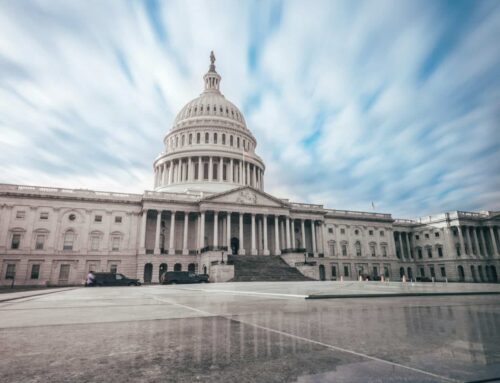As the year winds down, we are rallying behind a timely move: setting up a bipartisan fiscal commission. Think of it as our end-of-year resolution to tackle the budget mess we’re in. With more money going out than coming in, it’s high time we sorted this out. This isn’t just about balancing books; it’s about keeping our economy on track and maintaining our country’s reputation.
As we have said many times before, the current trajectory of our nation’s fiscal health is unsustainable and poses a significant threat to our economic prosperity and global standing. By centralizing these discussions within a dedicated commission, we can more effectively scrutinize the federal budget, identify waste, evaluate potential reforms, and propose effective, data-driven solutions.
The House Budget Committee is considering the creation of a bipartisan, bicameral fiscal commission, as proposed in the bipartisan H.R. 5779, “The Fiscal Commission Act of 2023” (which also has a bipartisan Senate companion measure). This proposal aims to bring all sides together to understand the principal drivers of the unsustainable national debt and to address the insolvency of critical government programs in a depoliticized and responsible way. If lawmakers want to tinker with the structure and mechanisms for getting the commission’s recommendations to a vote, fine. But the fact is, the current fiscal situation isn’t tenable, and it doesn’t take more than a cursory glance at how Congress has been operating recently to know they are not up to the task.
Any commission’s primary function should be to identify policies to improve the fiscal situation in the medium term and to achieve a sustainable debt-to-GDP ratio in the long term. For any recommendations related to federal programs for which a federal trust fund exists (looking at you Highway Trust Fund and of course Social Security), solvency must be improved for decades to come. The commission will also propose recommendations designed to balance the budget at the earliest reasonable date, including at minimum, stabilizing the debt-to-GDP ratio at or below 100 percent within 10 years.
Key steps for stabilizing the national debt and reducing the deficit include generating additional revenue, simplifying the tax code, controlling discretionary spending, and modifying entitlement programs. We are confident that a fiscal commission would greatly benefit from the comprehensive research and recommendations previously offered by organizations focused on fiscal responsibility, such as (cough) TCS, as well as from insights of past government commissions like the National Commission on Fiscal Responsibility and Reform (Simpson-Bowles).
The commission should consider the following recommendations:
- Agency Savings: Require federal agencies to identify areas of their budget that could be cut and recommend shifts from inefficient spending to more productive investments.
- Revenue: Identify additional revenue from revising the tax code to eliminate unnecessary or overly generous tax expenditures.
- Stop Abuse of Emergency Spending: Add stricter definitions for what qualifies as an “emergency” to prevent misuse of emergency funding designations.
- More Realistically Budget for Disaster: The current Disaster Relief Fund is budgeted based on a 10-year rolling average of previous disaster spending. Incorporating projections and forecasts would make this request more realistic and reduce last-minute emergency ‘off budget” funding.
While there are differing views on the effectiveness and approach of a bipartisan fiscal commission, it is clear that action is needed to address our nation’s fiscal challenges. A commission has its flaws, but it appears to be the tool with the greatest likelihood of success.
As we approach the end of the year, let’s give taxpayers the gift that keeps on giving: a bipartisan fiscal commission dedicated to promoting fiscal responsibility and effective governance.










